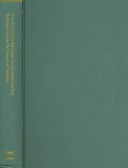Erasmus Darwin (1731-1802) was an accomplished scientist and inventor, and a best-selling poet whose style had a marked influence on Wordsworth and other Romantics. At the same time he was one of the most successful doctors in 18th-century England (he was offered - and refused - the post of royal physician to George III). Darwin was one of the founders of the Lunar Society in Birmingham and his friends included James Watt, Matthew Boulton, Josiah Wedgwood and Joseph Priestley. He also corresponded with Joseph Banks and Benjamin Franklin. Among his many inventions was a horizontal windmill, a "talking machine", and a steering mechanism that was eventually adapted for use in modern cars. In his writings Darwin was equally ground-breaking. He translated and explained the Linnaean (sexual) system of botany and popularized it in the risque verse of "The Botanic Garden". In Zoonomia he laid out a new system of disease classification and put forward a theory of biological evolution a full 70 years before his grandson, Charles. Darwin's "Plan for the Conduct of Female Education" was an outstanding 18th-century treatment of that theme.
His book "Phytologia" summarized plant physiology and advocated progressive scientific agriculture, stressing the continuity between plant and animal life. In his last great poem, "The Temple of Nature", Darwin rejected the Biblical creation myth in favour of a naturalistic anticipation of the "big bang" theory. This set of scarce and illustrated books in their best editions, prefixed by Martin Priestman's new introduction, should be of interest to historians of science and literary specialists alike.
- ISBN10 1843710862
- ISBN13 9781843710868
- Publish Date 8 January 2004
- Publish Status Out of Print
- Out of Print 26 February 2016
- Publish Country GB
- Publisher Bloomsbury Publishing PLC
- Imprint Thoemmes Continuum
- Edition 1791-1803 ed
- Format Hardcover
- Pages 3765
- Language English
